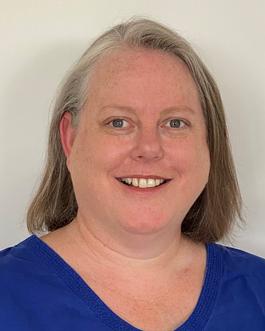Why Voluntary Assisted Dying Training is Essential for Hospital Staff
6948 0
A blog written by Dr Caroline Phelan, End-of-Life Essentials Co-Lead, Flinders University
Dr Caroline Phelan, the End-of-Life Essentials Co-Lead, led the development of the Mandatory medical education for Voluntary Assisted Dying (VAD) in South Australia and is currently involved in research projects focused on VAD across Australia.
As Voluntary Assisted Dying (VAD) becomes legally accessible across all Australian states, it is crucial for clinicians working in acute hospitals to be thoroughly prepared to engage in discussions with patients about all end-of-life choices, including VAD.
Healthcare professionals should be ready to not only undertake specific training and stay informed about local policies, but also be thoroughly prepared to engage directly with patients on what could be a sensitive topic.
The new End-of-Life Essentials (EOLE) Voluntary Assisted Dying in Acute Hospitals module is designed to equip nurses, doctors, and allied health professionals with the essential knowledge and skills needed to confidently and compassionately discuss VAD.
This preparation is vital to ensuring that patient care remains respectful, empathetic and professional.
Here are the key reasons why this education is essential in acute hospital settings.
1. VAD is Often Requested at a Critical Point in the Patient’s Life
Patients in acute hospital settings often discuss VAD during crises, like when their illness worsens, or treatments fail to provide expected results.
Some patients may already be considering or be approved for VAD when admitted to hospital for other reasons. These varied circumstances require staff to be knowledgeable, sensitive, and legally aware.
The education helps hospital staff respond appropriately to VAD discussions, whether it’s a first-time request or a general inquiry that may have first begun prior to admission.
EOLE education aims to teach healthcare professionals to assess situations and respond empathetically, respecting each patient's wishes.
2. Enhancing Communication Skills and Emotional Awareness
Conversations with patients, families, and care teams about VAD can be complex.
The module provides essential communication techniques to help staff discuss VAD with empathy and clarity. It emphasises understanding personal values and attitudes toward end-of-life decisions, empowering healthcare workers to have open, unbiased discussions that prioritise patient needs and comfort.
3. Understanding Legal and Ethical Boundaries Around VAD
Legal requirements for VAD vary across Australian states and territories, making it crucial for healthcare providers to know the laws in their area and protocols in their facility.
State mandates require healthcare professionals to complete training to understand their legal responsibilities and protections. While professionals can conscientiously object to participating in VAD, and some organisations may also not participate, all staff must adhere to professional standards and not hinder a patient’s access to VAD.
The EOLE module helps navigate potentially challenging conversations, ensuring health professionals support patients within their local policies while aligning with patient values.
4. VAD and End-of-Life Care: Complementary, Not Competitive
VAD is not an alternative to end-of-life care, but an additional choice. Patients opting for VAD can still receive palliative and supportive care.
The EOLE education emphasises a patient-centred approach, encouraging exploration of all treatment including high standards of compassion, regardless of a patient’s VAD decision and support options to empower informed end-of-life care decisions.
5. Access to Resources and Support Networks
Navigating the VAD process is novel, and it can be challenging, both for patients and healthcare providers.
The module identifies statewide services which offer guidance on handling VAD requests, understanding the process, and providing support to patients and families.
The VAD module also includes resources for further learning, ensuring that staff can stay updated on best practices and legal changes related to VAD.
Conclusion
EOLE VAD education module is an essential resource for acute hospital staff, providing the skills and knowledge needed to support patients facing profound decisions. By understanding the legal, ethical, and emotional aspects of VAD, healthcare professionals can ensure that every patient receives compassionate, informed, and respectful care in their final stages of life.

Dr Caroline Phelan
End-of-Life Essentials Co-Lead, Flinders University